WiFi camera visual remote control
WiFi camera visual remote control1. Experiment preparation2. Experimental installation2.1 Assemble the WiFi camera module to the car:2.2 Connect the camera to the car3. Microbit building block import and simple instructions3.1 Open the programming website3.2 New project3.3 Add building blocks3.5 Introduction to the main building blocks4. Open the source code provided by the tutorial5. Experimental results6. Expansion: STA mode connection
1. Experiment preparation
- SuperKit car
- microbit
- wifi camera
2. Experimental installation
2.1 Assemble the WiFi camera module to the car:
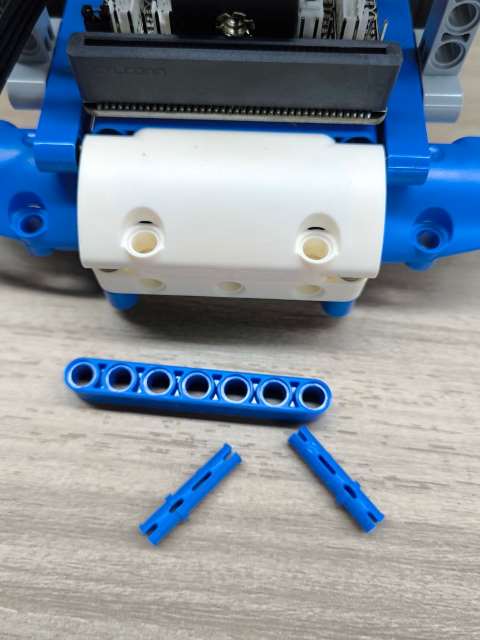
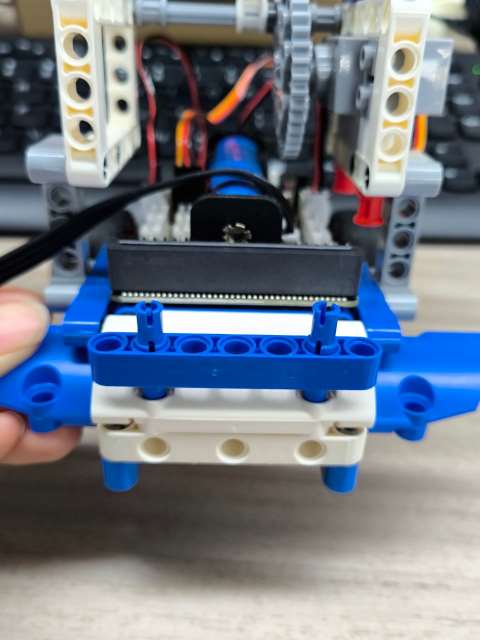
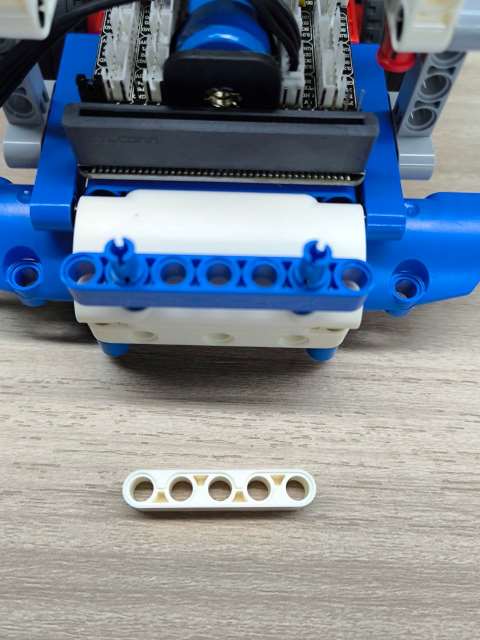
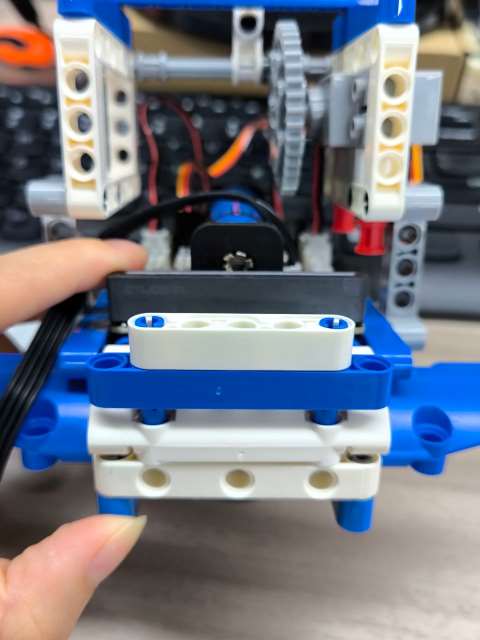
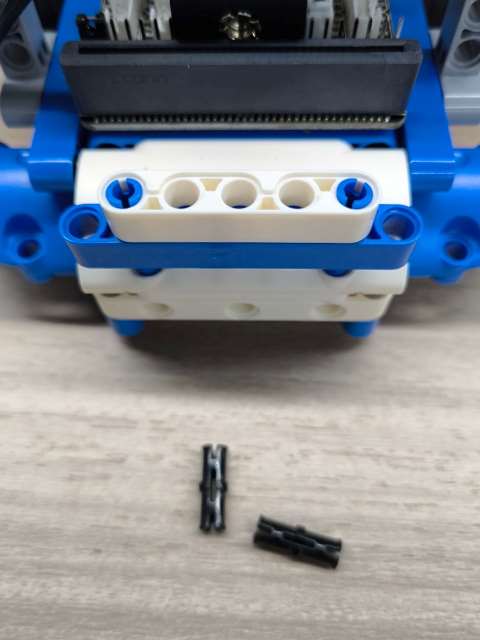
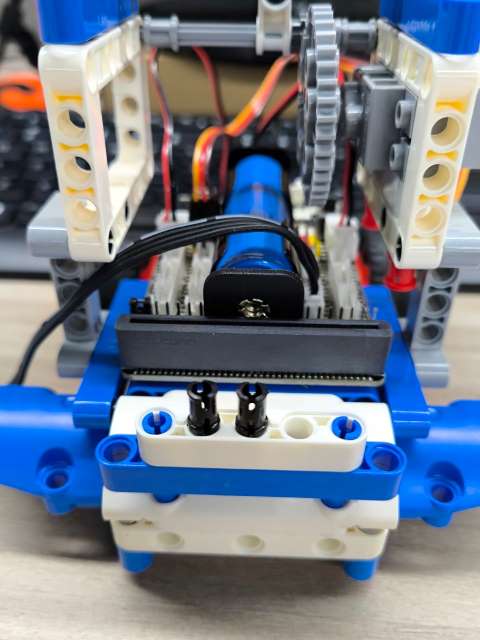
After the installation is completed, as shown in the figure:
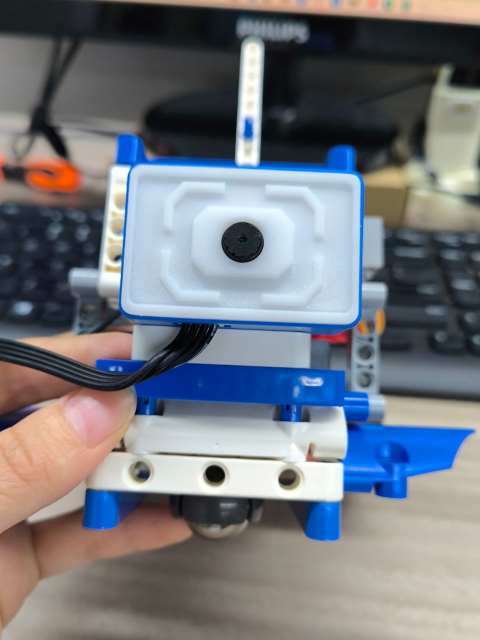
2.2 Connect the camera to the car
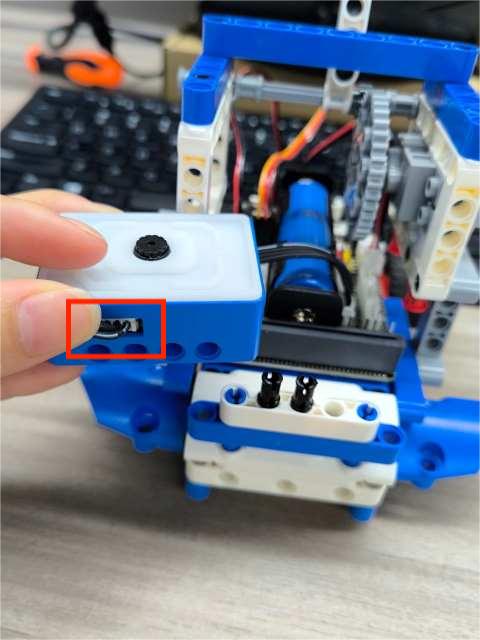
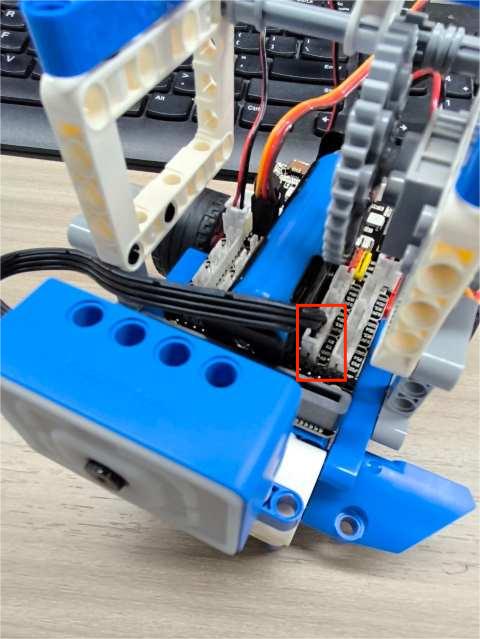
3. Microbit building block import and simple instructions
3.1 Open the programming website
https://makecode.microbit.org/#
3.2 New project
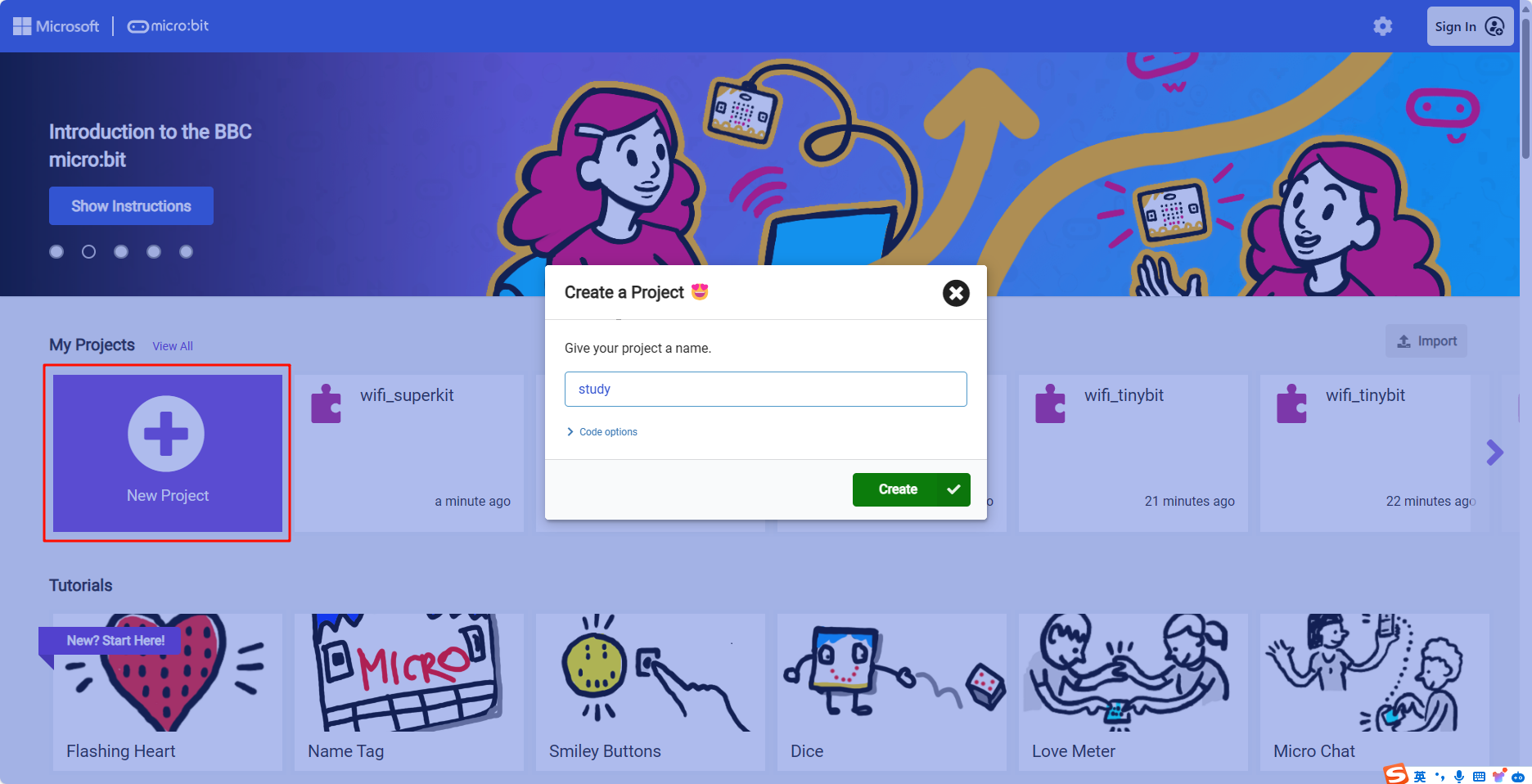
3.3 Add building blocks
Click on Extensions
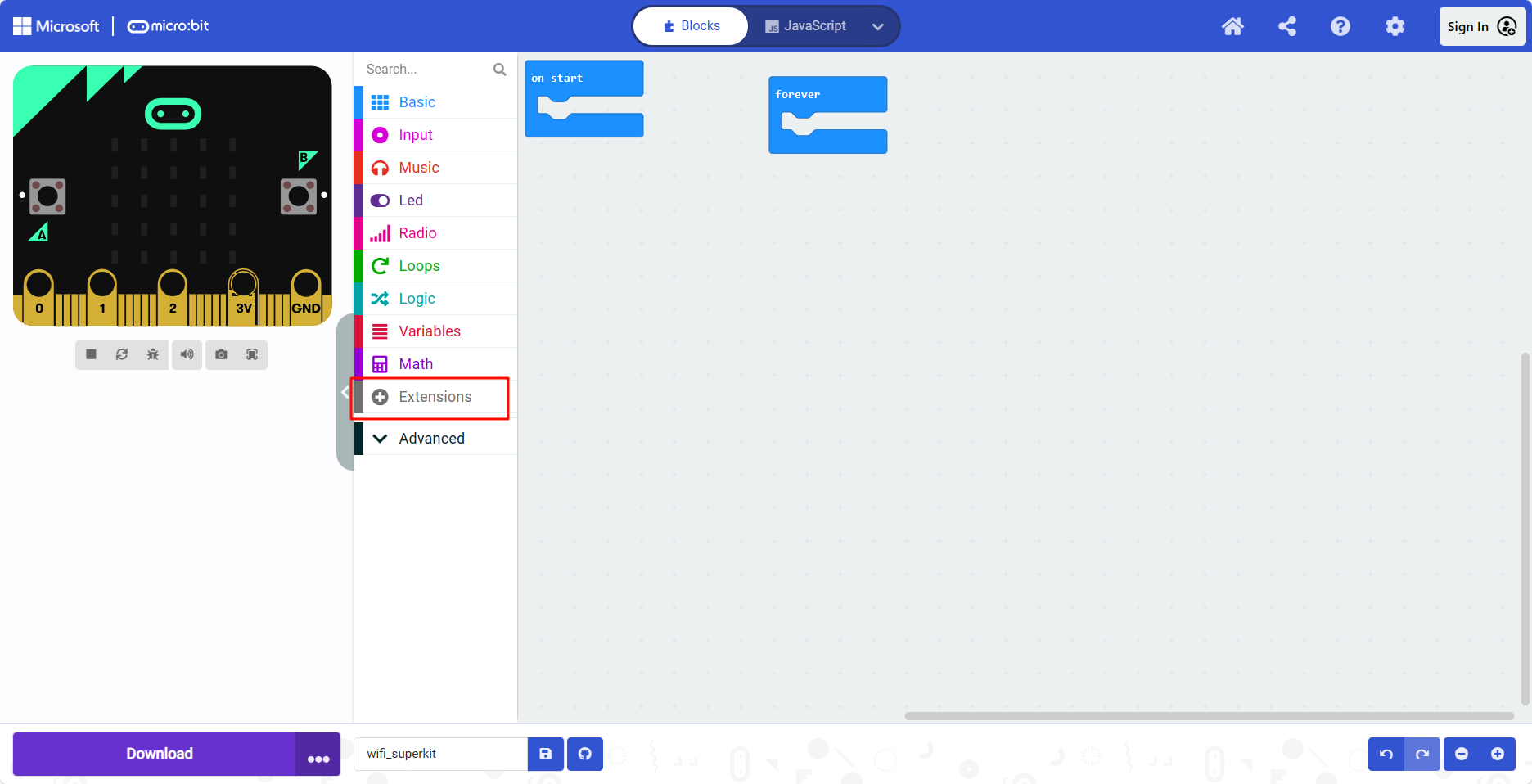
Add the camera building block: https://github.com/yahboomtechnology/ESP32-wifi-Microbit
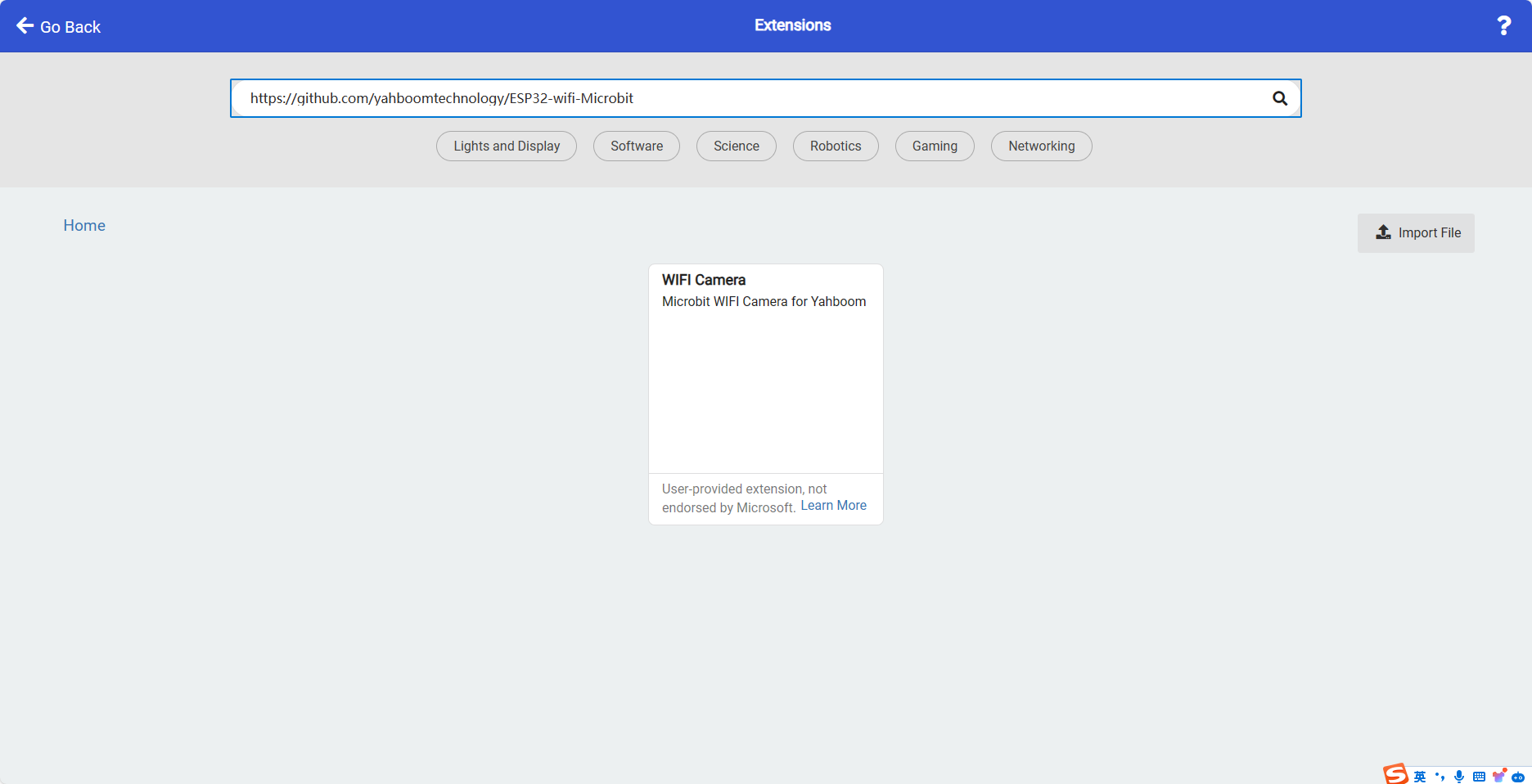
Add superkit building blocks: https://github.com/lzty634158/SuperBit
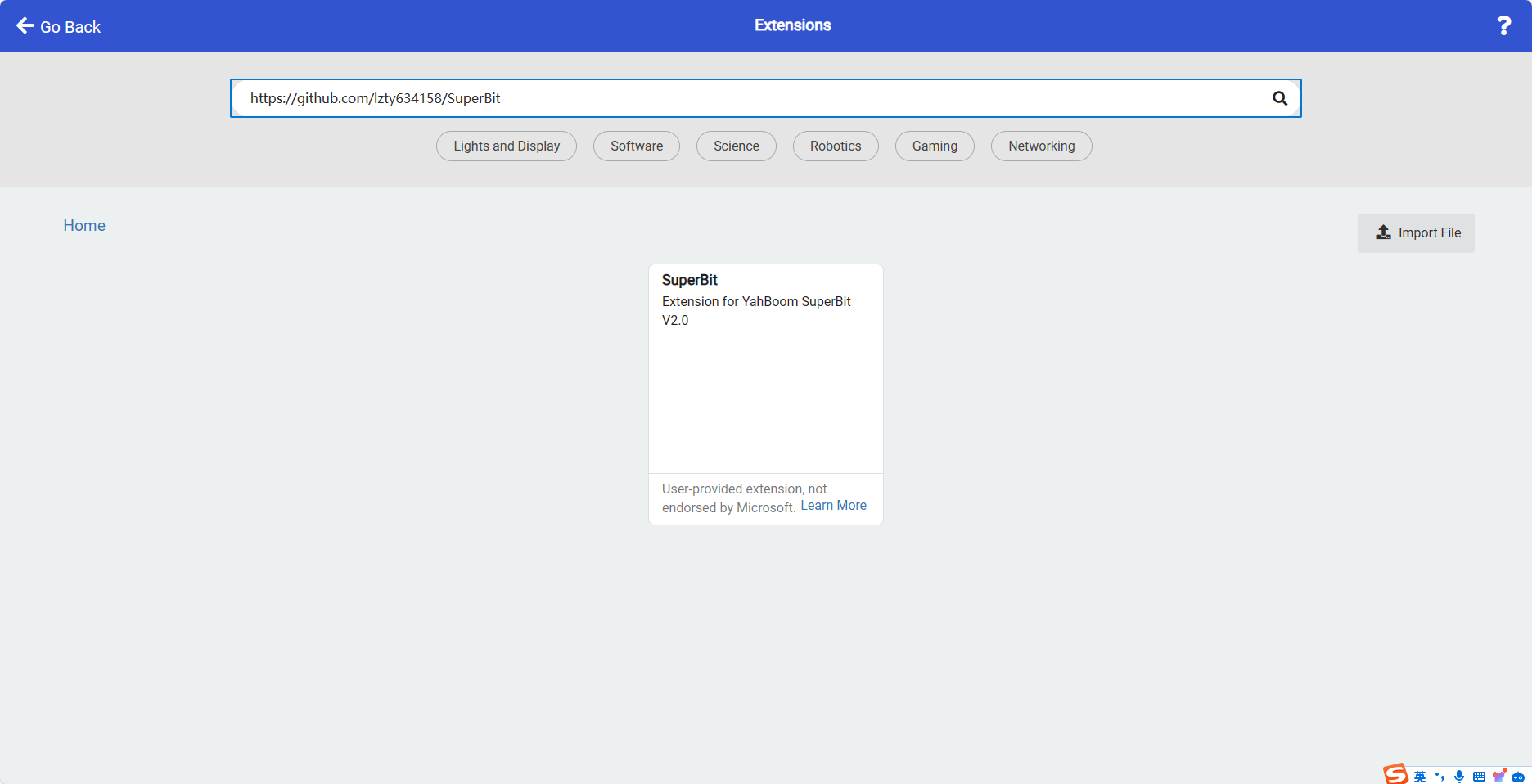
After the import is successful, as shown in the figure:
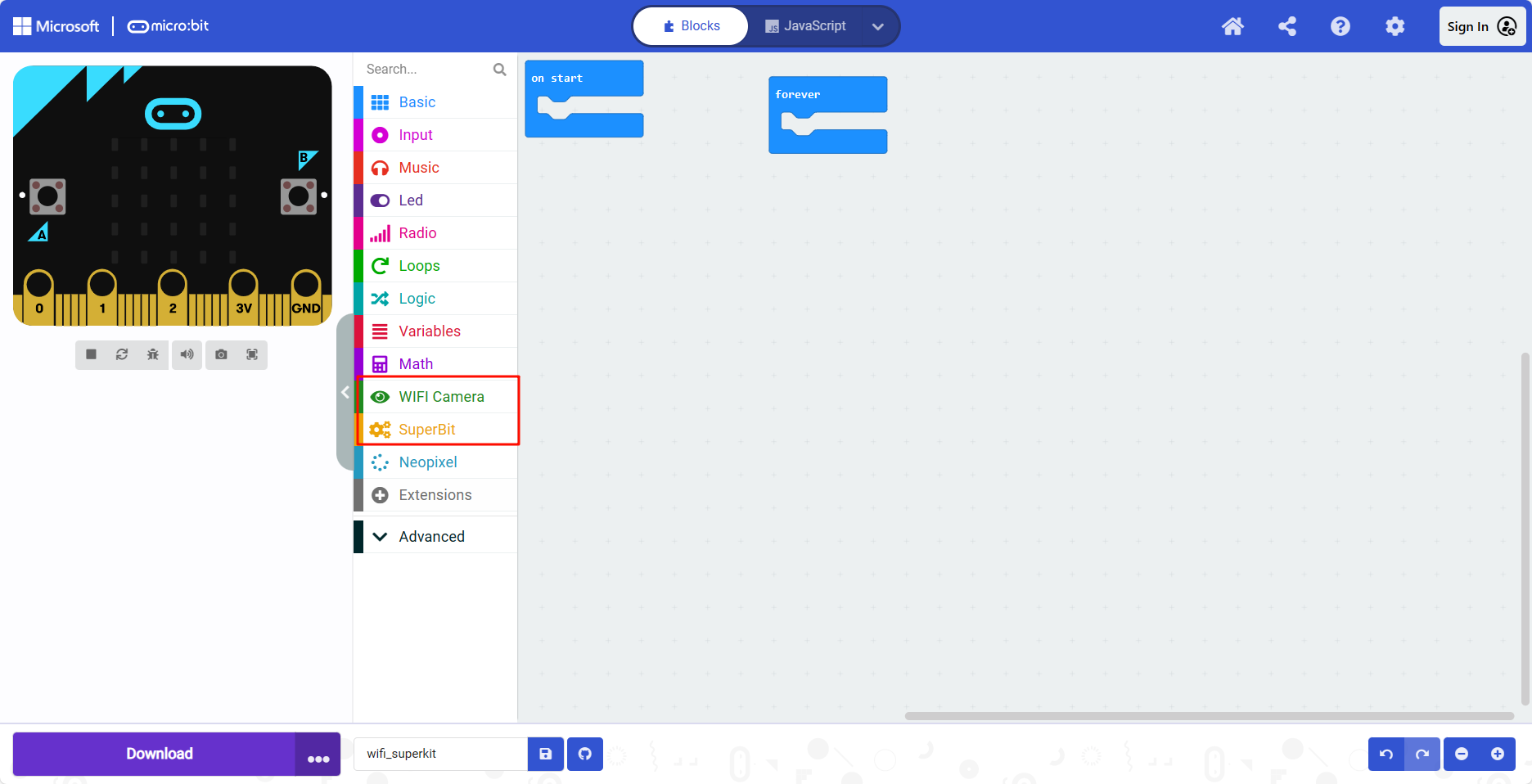
3.5 Introduction to the main building blocks
- Serial port initialization building block This is used to define the pins for serial port communication and communication with wifi cameras. The default baud rate is 115200 and cannot be changed.

- Set the size of the serial port receiving buffer This building block is used to define the size of a packet of data that can be transmitted transparently, such as
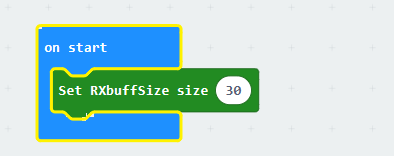 This defines the maximum size of a packet to be 30 characters. Exceeding it will result in incomplete data reception. This value cannot be less than 25, otherwise the IP information will also be incomplete
This defines the maximum size of a packet to be 30 characters. Exceeding it will result in incomplete data reception. This value cannot be less than 25, otherwise the IP information will also be incomplete - Building block for obtaining transparent transmission data This building block is mainly used to obtain the information sent by the host computer to the microbit, and transmit it as an intermediate information through the wifi camera
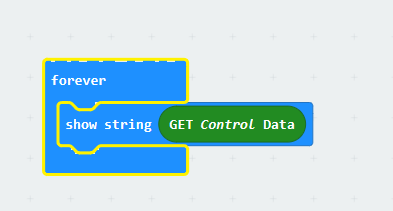
- Building block controlled by the car This building block is mainly used to receive the instructions sent by the app and transmit them to the car.
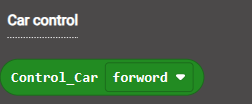
- You can know the function of other building blocks by looking at their names. How to use them can be found in the source code provided in this tutorial, which will not be explained in this tutorial.
4. Open the source code provided by the tutorial
Open the URL https://makecode.microbit.org/# in the browser
Then drag the microbit-wifi_superkit_AP.hex file provided in this experiment into the browser that opens the URL, and the program diagram of the source code of this project will automatically open.
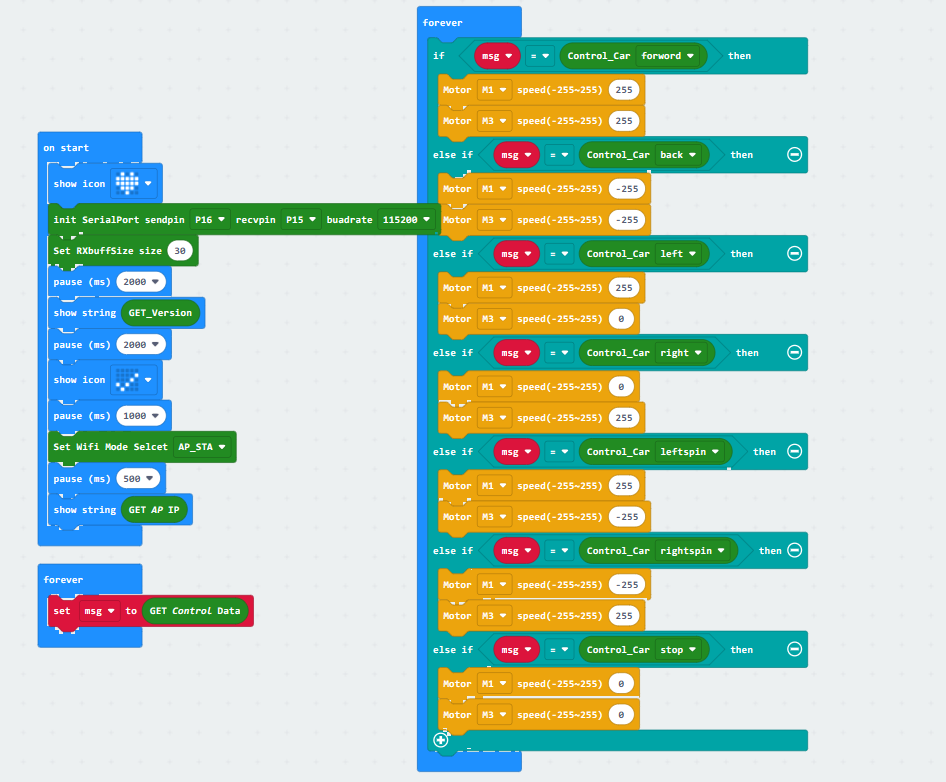
5. Experimental results
After powering on, wait until the microbit screen no longer displays anything before you can control and connect the app. The initial display is a heart icon. After successful startup, its firmware version number will be displayed. Wait for a display. After checking the icon(as the picture below), the default IP address "ap_ip:192.168.4.1" of the hotspot AP mode will begin to be displayed. (This tutorial recommends using the simple spontaneous hotspot AP mode to connect. To connect to WIFI using STA mode, you can see the expanded content of STA mode connection below)
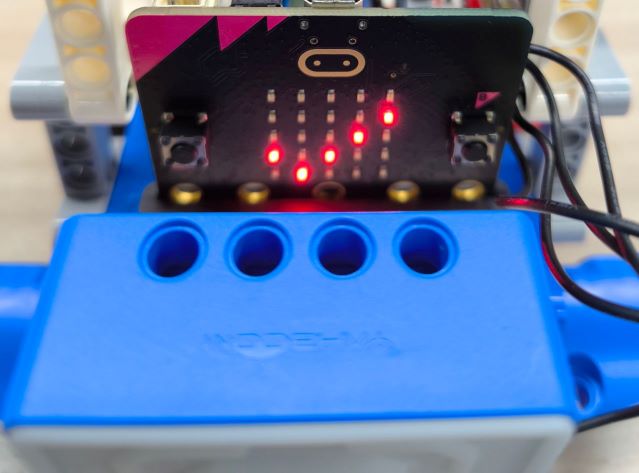
Download the APP: For Android, please use the browser to scan the QR code below to download and install YahboomCam. For Apple, please use the camera to scan the QR code to enter the App Store to download and install. Or search for "YahboomCam" or "YahboomCam" or "Yabo Smart" in the App Store to find " YahboomCam”.
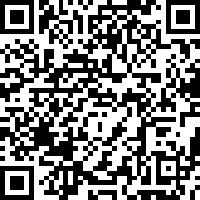
Use your mobile phone to connect to the hotspot (the default hotspot name is Yahboom_ESP32_WIFI, there is no password). Open YahboomCam, enter the camera IP and fill in the default IP address 192.168.4.1 displayed by the microbit, and then click Login.
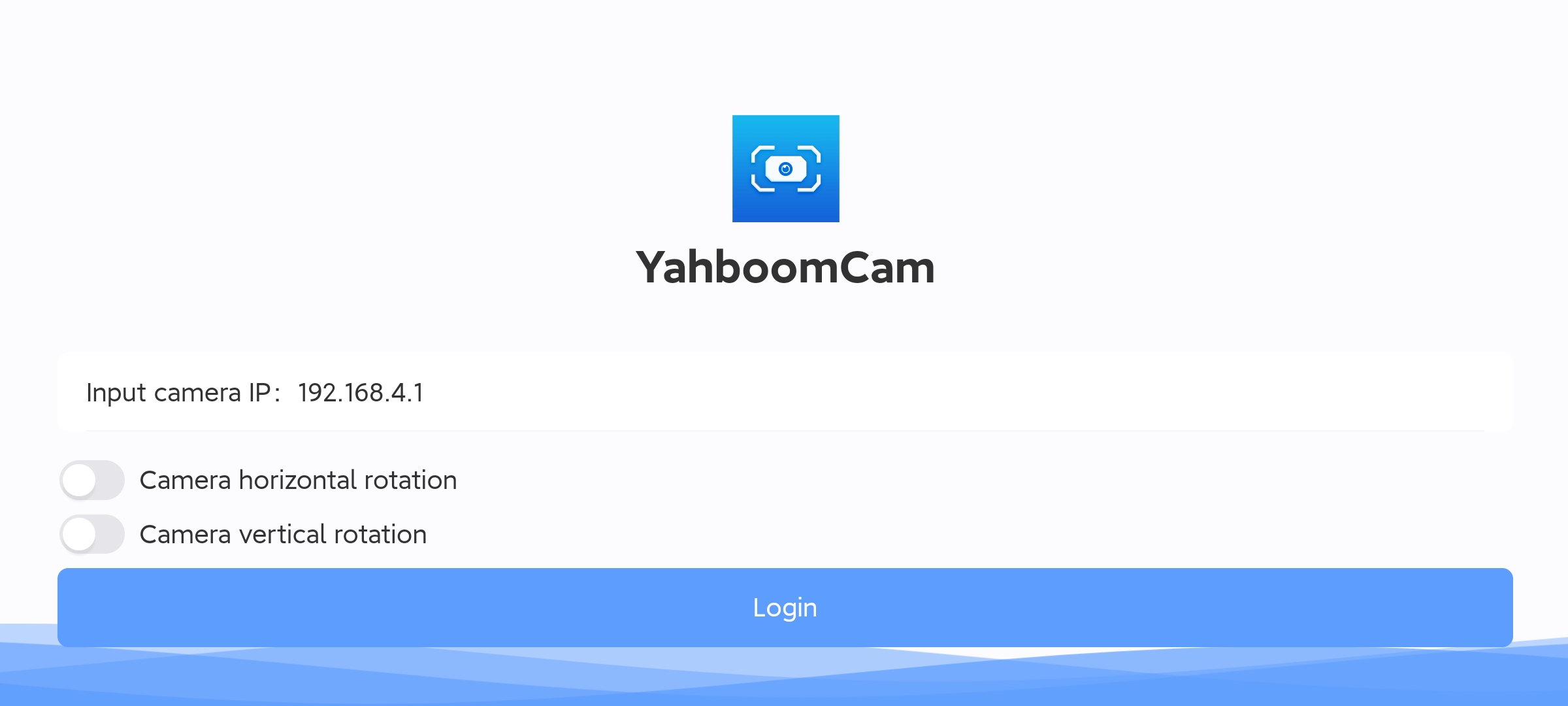
The page after logging in is as follows. By clicking the control button on the interface, you can remotely control the car, move forward, backward, turn left, turn right, etc. (the car cannot be controlled by the steering gear), and the real-time picture of the camera is also displayed. In the app page, you can control the camera through the camera horizontal and vertical control switches.
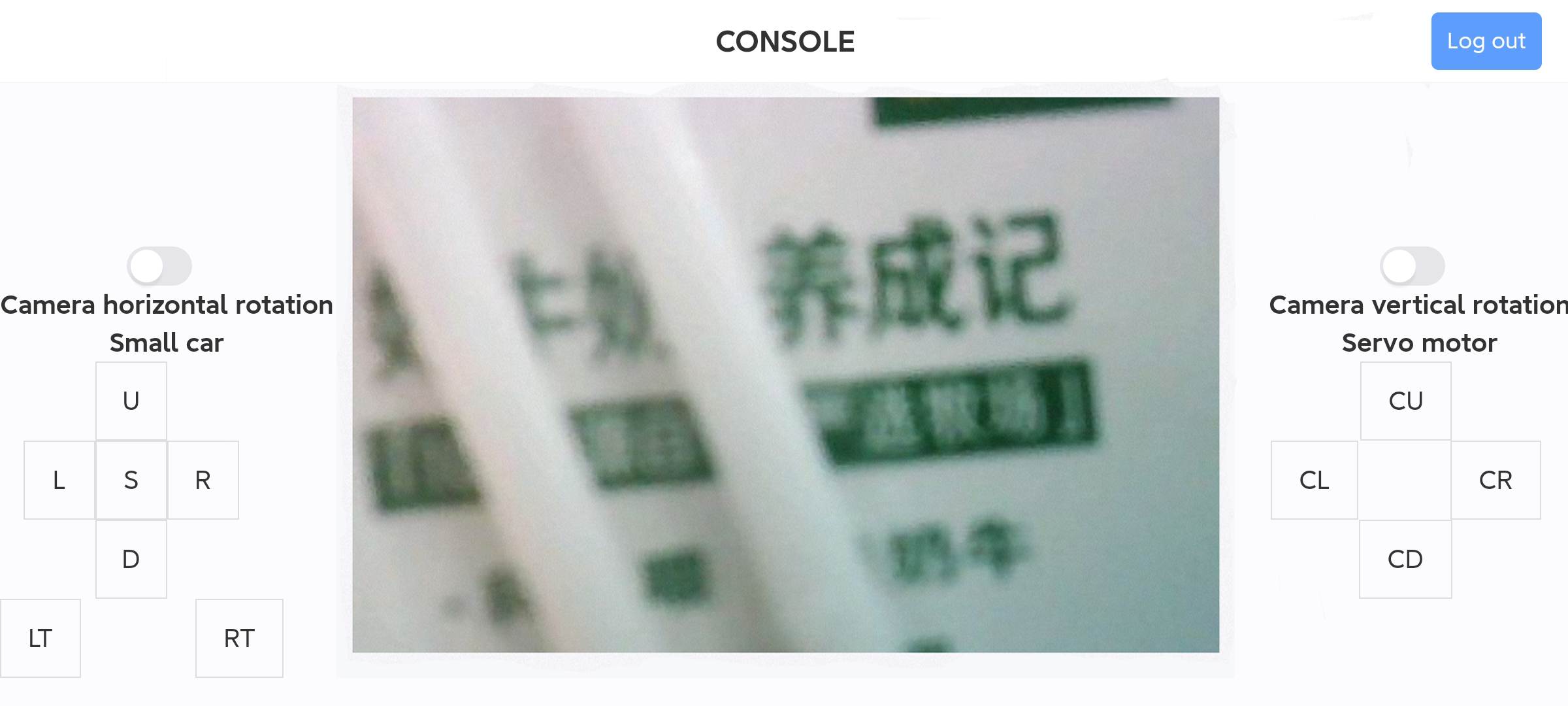
6. Expansion: STA mode connection
Open the URL https://makecode.microbit.org/# in the browser
Then drag the microbit-wifi_superkit_STA.hex file provided in this experiment into the browser that opens the URL, and the program diagram of the source code of this project will automatically open.
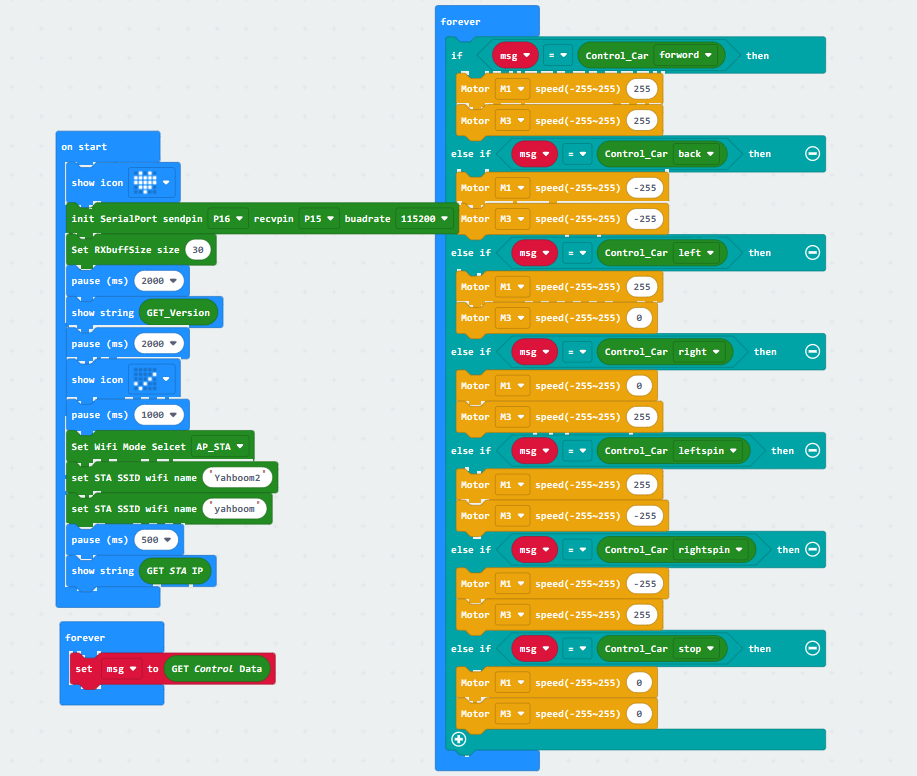
Set the name and password of the WiFi to be connected. The name and password of the WiFi must be filled in correctly according to the WiFi you want to connect to. Otherwise, there is no way to correctly connect to the WiFi and display the IP address. If the connection is successful, the IP address of sta_ip: 192.168.x.x will be displayed. If the connection is unsuccessful, sta_ip: null will be displayed. You need to check whether the WiFi name and address filled in the program are correct.
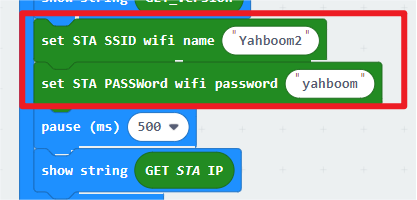
Connect the mobile phone to the WIFI set above, and ensure that the mobile phone and the robot are connected to the same WiFi. Open YahboomCam, enter the camera IP and fill in the sta_ip address displayed by the microbit (pay attention to the content displayed by the microbit, after seeing the icon tick, it will start to display "sta_ip: 192.168.x.x"), and then click to log in. (The IP in the picture is only an example, the specific IP is subject to the microbit display)
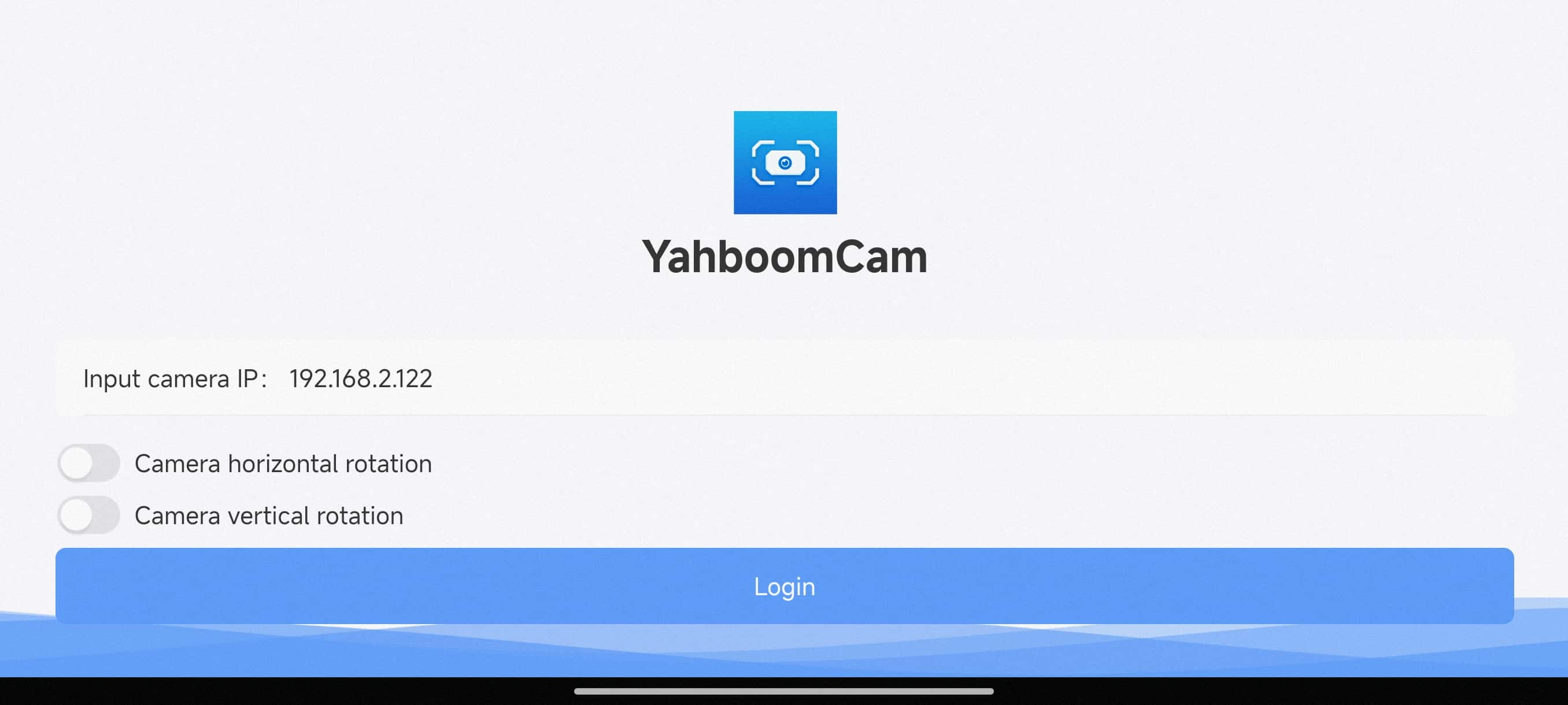
After logging in, you can see the following page. By clicking the control button on the interface, you can remotely control the car, forward, backward, turn left, turn right, etc. (the car cannot be controlled by the steering gear), and the real-time picture of the camera It is also displayed on the app page, and the camera can be controlled through the camera's horizontal and vertical control switches.
